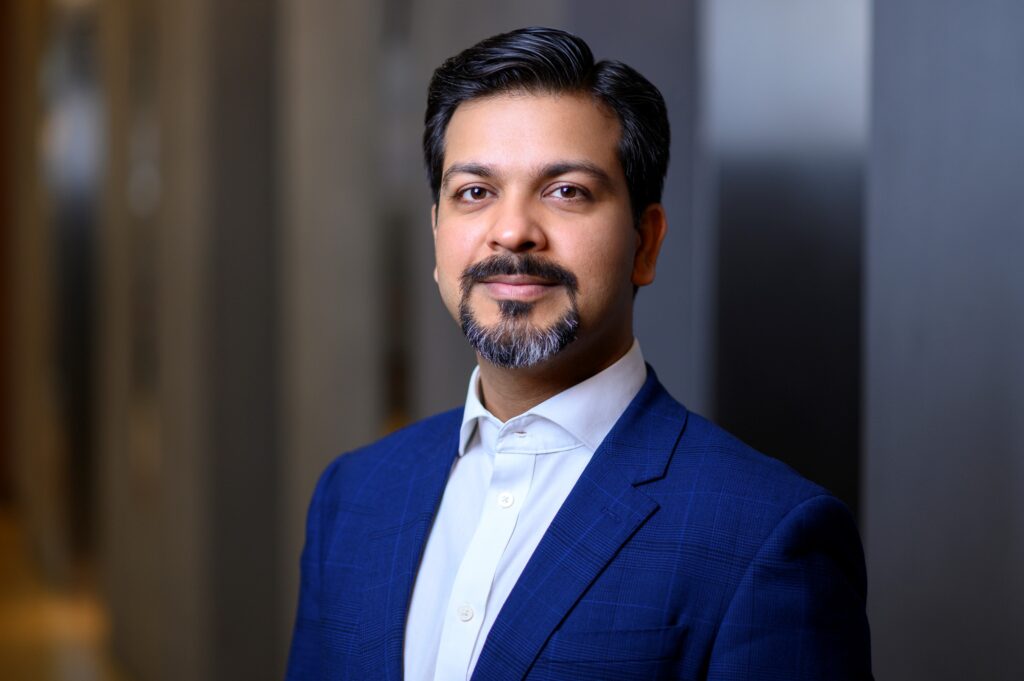Sustainable Returns: What Dr Chakshay Sharma’s Doctoral Research Reveals About ESG in Europe

Environmental, Social, and Governance (ESG) investing is a niche investment methodology and one of the dominant trends currently in the global financial markets. This investment methodology was quite unpopular among investors and financial services professionals when I initiated research on the topic in 2018-19, which indeed spiked my curiosity in the subject.
Moreover, I was a critic back then when it came to the application of ESG to financial investing. That eliminated the dreaded researchers’ trap of confirmation bias and provided breeding grounds for critical thinking – a sound reasoning for choosing the topic back then. Interestingly, and thankfully, ESG investing has gained a lot of traction over the last 4-5 years, both in academia and business. ESG factors have gone mainstream, reshaping portfolio construction, risk management strategies, and asset pricing models, consequently redefining the very structure of capital markets and, hence, international business and corresponding regulations.
My research focused on investigating the role of ESG factors in enhancing risk-weighted performance of equity portfolios in Europe. Broadly, I sought to answer how and why, or why not, ESG factors impact risk-adjusted returns of equity portfolios, establish their impact – if any – on traditional asset pricing models and understand their application in portfolio construction and risk management.
The research findings have implications for the industry. For wealth and asset managers, ESG investing represents a dual opportunity: aligning with clients’ growing demand for sustainable, responsible, ethical and green investing while enhancing portfolio performance. Fund managers can deploy ESG integration to achieve smarter diversification, improved risk management and neo-value investing. Asset managers can benefit from developing robust ESG frameworks to address the currently fragmented ESG reporting and find and build value along the entire supply chain. Last but not least, policymakers can employ ESG factors to reinforce trust and transparency in the global financial markets and the financial services industry while playing a pivotal role in scaling ESG efforts by mandating and streamlining ESG disclosures.
A word for aspiring Doctoral scholars
A research degree is much more than just an academic pursuit. In the words of Zora Neale Hurston – a 19th-century American writer, research is formalised curiosity; it is poking and prying with a purpose. Clearly, almost no research journey is straightforward. It is a winding path full of creativity, imagination, deep dives and eureka moments – well, few genuine eureka, but most end in detours and, worse, dead ends! That is the biggest reason why the research process requires a willingness to embrace failure as part of learning. And as we have learned from Jeff Bezos, failure and invention are inseparable twins.
Doctoral research journey is a transformative experience that takes persistence, resilience, patience, and grit over a period of years. And it requires guided curiosity and courage to challenge established paradigms and venture into uncharted territories. Of course, as a knowledge creator, one clearly establishes oneself internationally as a subject matter expert. Additionally, a Doctorate degree demonstrates highly sought-after professional skills such as innovation, critical thinking, problem-solving, project management, time management, prioritisation, self-discipline and data science.
Doctoral research is a highly rewarding and transformative experience. However, successful completion certainly requires focus and a firm commitment to self that stands the test of time. Other than that, I can close with some suggestions for aspiring Doctoral scholars eager to make their mark on the world of knowledge:
- Choose your supervisors carefully. Ignore this suggestion at your own peril. Research can be quite isolating at times. You will need all the encouragement, engagement and support one can get.
- Give your thesis-writing skills the time and mind they need to develop. Structuring years of research work into a coherent narrative and preparing for the defence are intense experiences that need perseverance and clarity, both in thought and in communication.
About the Author:
Dr Chakshay Sharma is the Director at Credence Consultancy and recently completed his Doctor of Business Administration (DBA, 2024) program with SP Jain School of Global Management.
Related Posts
-
 In This World of Internationalisation, Will You Survive?
No Comments | Jul 27, 2011
In This World of Internationalisation, Will You Survive?
No Comments | Jul 27, 2011 -
 Breaking corporates shackles to start a wealth management boutique
No Comments | Feb 18, 2015
Breaking corporates shackles to start a wealth management boutique
No Comments | Feb 18, 2015 -
 S P Jain (Global) alumnus Chetan Sodhani shines
No Comments | Apr 2, 2015
S P Jain (Global) alumnus Chetan Sodhani shines
No Comments | Apr 2, 2015 -
 Alumnus Jaideep Sengupta’s success story
No Comments | Apr 17, 2015
Alumnus Jaideep Sengupta’s success story
No Comments | Apr 17, 2015
